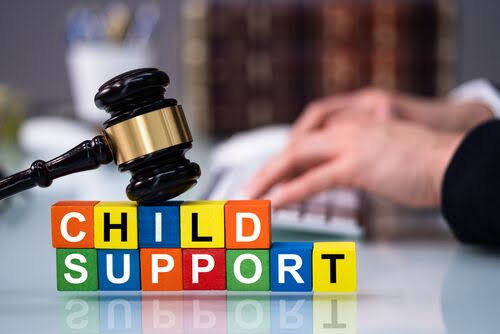What are the new child support laws for 2025?
In 2025, several states have updated their child support laws to better reflect modern family dynamics and economic realities.
These changes aim to ensure fairer support calculations and more effective enforcement.
For instance, Texas has introduced SB 942, allowing courts to order retroactive child support payments starting from the date of conception, rather than the child’s birth.
This means fathers could be responsible for prenatal expenses if paternity is established.
In California, SB 1055 prohibits the suspension of driver’s licenses for low-income parents who fall behind on child support, provided their income is below 70% of the area’s median.
This change aims to prevent job loss due to license suspension, helping parents maintain employment and meet support obligations.

How is child support calculated under the new laws?
Child support calculations now more closely consider both parents’ incomes and shared parenting time.
In New Hampshire, a new law presumes a $0 child support obligation when parents have substantially similar incomes and equal parenting time.
Arkansas has adopted an “income shares” model, where both parents’ incomes are combined to determine support obligations, promoting fairness in shared custody arrangements.
What changes have been made to child support enforcement?
Enforcement measures have been adjusted to balance accountability with compassion.
The federal government has lowered the threshold for passport denial due to child support arrears from $5,000 to $2,500, making it easier to enforce payments.
Conversely, California’s SB 1055 protects low-income parents from driver’s license suspension, recognizing that such penalties can hinder their ability to work and pay support.
Are there any changes to child support tax laws?
Despite rumors, there have been no federal changes to tax laws regarding child support.
A viral claim that only the paying parent can claim the child for tax benefits has been debunked.
Child support payments remain non-deductible for the payer and non-taxable for the recipient.
The new laws acknowledge the evolving nature of parenting.
In New Hampshire, equal parenting time and similar incomes can lead to a presumption of no child support obligation, reflecting the shared responsibilities of both parents.
Arkansas’s income shares model also supports shared custody by considering both parents’ financial contributions, promoting equitable support arrangements.
What are the penalties for not paying child support under the new laws?
Penalties for non-payment remain stringent. In Minnesota, failure to pay court-ordered child support can result in misdemeanor, gross misdemeanor, or felony charges, depending on the circumstances.
Additionally, the federal government has lowered the threshold for passport denial due to arrears, increasing enforcement pressure on delinquent parents.
Are there any changes to child support laws in California?
Yes, California has implemented several changes to support low-income parents.
Under SB 1055, driver’s licenses cannot be suspended for parents earning below 70% of the area’s median income.
This measure aims to prevent job loss and support continued payment of child support.
Additionally, California has updated its child support calculation software, moving away from DissoMaster to ensure compliance with new guidelines.
How do the new laws affect child support for low-income parents?
The 2025 reforms aim to alleviate the burden on low-income parents. California’s SB 1055 protects these parents from driver’s license suspension, recognizing the importance of maintaining employment to meet support obligations.
In Ireland, child support payments have increased by €8 per child per week, providing additional support to low-income families.
What are the implications of the new child support laws for fathers?
Fathers may experience increased responsibilities under the new laws.
In Texas, SB 942 allows for retroactive child support from the date of conception, potentially increasing financial obligations for fathers.
However, shared custody arrangements and income-based calculations in states like New Hampshire and Arkansas can lead to more equitable support obligations, benefiting fathers involved in their children’s lives.
How do the new laws address child support for unborn children?
Texas’s SB 942 permits courts to order child support payments starting from the date of conception, covering prenatal and postnatal healthcare expenses.
- This change acknowledges the financial needs associated with pregnancy and early child-rearing.
The bill has passed the Texas Senate and awaits further legislative action before becoming law.
Are there any changes to child support laws in Texas?
Yes, Texas has implemented several changes.
The income cap for calculating child support has increased to $9,200 per month, ensuring that support obligations reflect current economic conditions.
Additionally, SB 942 allows for retroactive child support from conception, potentially increasing financial responsibilities for noncustodial parents.
Shared custody arrangements are more equitably addressed under the new laws.
In New Hampshire, equal parenting time and similar incomes can result in no child support obligation, reflecting the shared responsibilities of both parents.
Arkansas’s income shares model also supports shared custody by considering both parents’ financial contributions, promoting fairness in support calculations.
These changes aim to ensure that child support obligations are fair and reflective of each parent’s involvement and financial capacity.



